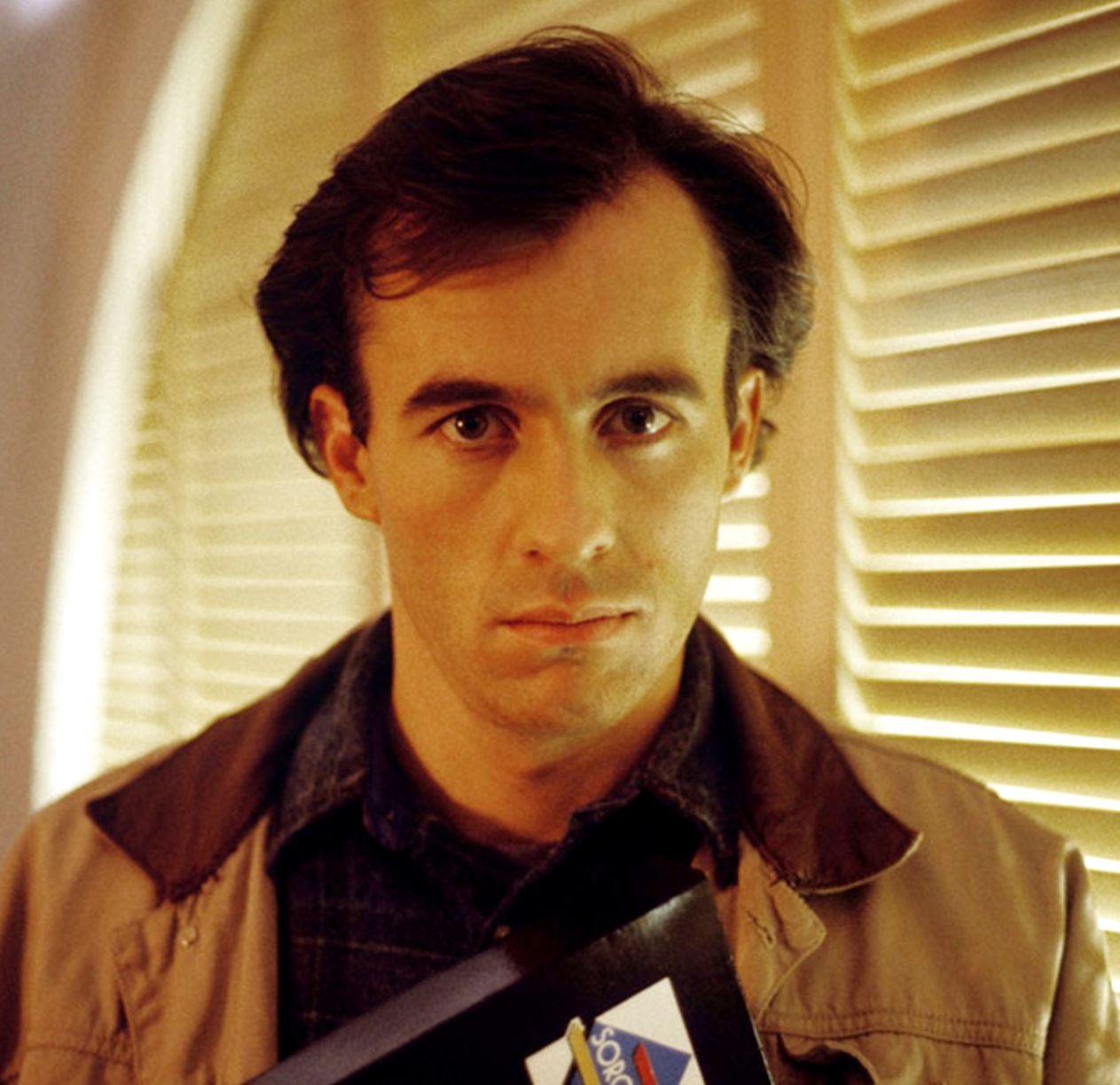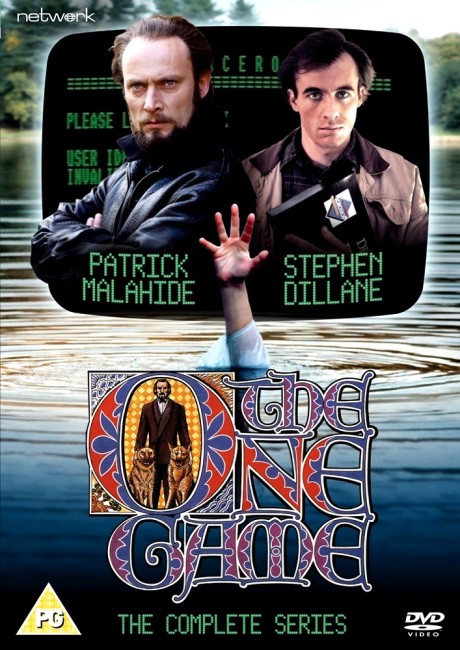UK. 1988.
Crew
Director – Mike Vardy, Teleplay – John Brown, Conceived by Tony Benet, Producer – Deirdre Keir, Music – Nigel Hess, Special Effects Supervisor – Arthur Beavis, Production Design – Giovanni Guarino. Production Company – Central Independent Television.
Cast
Stephen Dillon [Dillane] (Nicholas Thorne), Patrick Malahide (Magnus), Philippa Haywood (Jenny Thorne), Kate McKenzie (Fay), David Mallinson (Tom Drake), Andrew Keir (Lord Maine), John Bowe (Gavin), Alex Norton (The Conjuror), Terry Coates (Manservant), James Coyle (The Beggar), Ann Pennington (Dr Vogler), Peter Howell (Professor), Rick Stone (Hacker)
Plot
Nick Thorne runs the successful videogame design company Sorcerer. All of a sudden, his accountant Tom Drake finds that someone has hacked into their accounts and stolen £2.3 million, meaning the imminent financial collapses of the company unless they can raise capital by Tuesday. Nick discovers that his former partner. the brilliant game designer Magnus, who was placed in a mental hospital, has returned. Magnus then abducts Nick’s ex-wife Jenny and leaves a videotape announcing that he has devised The One Game. Nick is forced to play the game, following a series of clues that dig into his and Magnus’s past. In the course of this, Magnus twists and turns things leaving Nick unable to be sure what is real and who in his life he can trust.
Reality games – in which a protagonist is given cause to doubt aspects of their own existence and question whether everything and everyone around them is part of an elaborately staged charade – has had some fascination on screens. The first film to deal with this was The Magus (1969) with Michael Caine being wound into an elaborate series of games by Anthony Quinn on a Greek island. There was the popular hit of David Fincher’s The Game (1997) where Michael Douglas has his life overturned by a series of reality games and other films on the subject with the likes of Fear, Inc. (2016). (See Films About Reality and Illusion).
The One Game was a tv mini-series made for UK’s Central Intendent Television that aired in six one-hour episodes. The mini-series gets the sense of rubber reality right – especially the scene where Stephen Dillon enters a town where he and a random stranger (Alex Norton) are shot at by gunmen, before Dillon leaves and the stranger abruptly tears off his fake wounded arm and tauntingly throws it in Dillon’s car. In another scene, Dillon is placed in a jail and the prisoner in the neighbouring cell cheers on his efforts to get the keys off a hook before simply opening his own cell door and walking out. There are all the revelations about people close to Dillon being part of the illusion.
It is maybe a little slow-paced in these twists for modern tastes – one suspects that if David Fincher had taken the script for The One Game instead of the ridiculously improbable one he had for The Game, we would have ended up with one really great work about reality games.

The surprise name in the cast is a young Stephen Dillane here billed as Stephen Dillon. Subsequent to this, Dillane went away and did a great deal of theatre and then gained some attention a couple of decades later as Stannis Berathian on tv’s Game of Thrones (2011-9). Here he is young and plays with a cockiness that is off the scale. The most recognisable and top-billed name is Patrick Malahide who was then best known as the comic Inspector Chisholm on the popular tv series Minder (1979-94). Malahide takes a surprisingly villainous turn here as the enigmatic Magnus, outfitted all in black and with a Mephistophelean beard as he skulks about masterminding the game, a part that suits him well.
Despite the reality and illusion themes, the mini-series is grounded in realism, although it does have a series of odd undertows to it where it keeps winding it various fantasy associations. The company is called Sorcerer, Magnus styles himself as a magician and the games seems to consciously echo Epic Fantasy. Stephen Dillon even picks up a copy of The Lord of the Rings (1954-6) in the company offices at one point. The most obvious of these fantasy associations is the hand coming up out of the lake in an obvious allusion to the Lady of the Lake from the Arthurian Legends. The mini-series also reaches an ambiguous ending that suggests Magnus may have been dead after all, an element that is left unexplained.
One of the amusing things watch the show today is how it is set against the backdrop of the videogaming revolution at a time when it was still in its infancy. There’s the amusing hack-in scene – all conducted in the days before the widespread prevalence of the internet – where the only thing the hacker has to bypass to get to the bank accounts is a single password. There’s also the amusement of seeing the old 286 graphics loading on the machines where you have to watch a line-drawn graphic appear in jagged bursts like a dot matrix printer.
Mini-Series online in several parts beginning here

